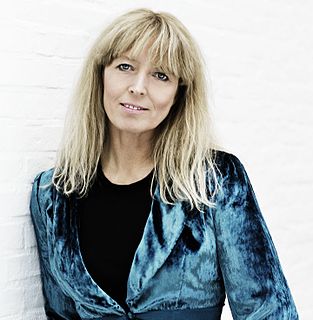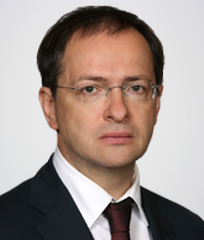Related Research Articles

Prāta Vētra, known outside Latvia as Brainstorm, is a Latvian pop/rock band. The band became popular internationally in 2000, when they finished third in the Eurovision Song Contest 2000 with the song "My Star".

The International Documentary Film Festival Amsterdam (IDFA) is the world's largest documentary film festival held annually since 1988 in Amsterdam. Over a period of twelve days, it has screened more than 300 films and sold more than 250,000 tickets. Visitors to the festival have increased from 65,000 in 2000 to 285,000 in 2018.

Vitaly Vsevolodovich Mansky is a Russian documentary film director. He is the founder of a festival of documentary movies, ArtDocFest and has resided in Riga since 2014. Artdocfest has since collaborated with the Riga International Film Festival.

Vija Artmane was a Latvian theatre and cinema actress.

Cinema of Latvia dates back to 1910 when the first short films were made. The first cinematic screening in Riga took place on May 28, 1896. By 1914 all major cities in Latvia had cinemas where newsreels, documentaries and mostly foreign-made short films were screened.

Hanna Polak is a Polish director, cinematographer and producer. For her short documentary film, The Children of Leningradsky, about a community of homeless children living in the Leningradsky railway station in Moscow, she was nominated for an Academy Award and an Emmy Award. In 2003, she was awarded Best Producer of Documentary Movies at the Kraków Film Festival for Railway Station Ballad.
The London Russian Film Festival is an annual film festival, launched by Academia Rossica in 2007. The festival is aimed to present cinema in Russian language to an English speaking audience. All films are shown in original language, with English subtitles. The film programme includes feature films as well documentaries and animated films. Apart from the film screenings, the festival encompasses Q&A sessions with actors, directors and producers presenting the films, discussion events about contemporary Russian films and culture, and film showings specially for children.

Pacific Meridian is an International Film Festival of the Asian-Pacific region, which has been held every September since 2003 in Vladivostok, Russia. Every year it brings together filmmakers from about 108 countries; with more than 1200 films submitted each year.

Harutyun Khachatryan is an Armenian film director, script writer, director of photography, film producer, General director of the Golden Apricot Yerevan International Film Festival, Meritorious Artist of the Republic of Armenia and voting Member of European Film Academy since 2006.

Vladimir Rostislavovich Medinsky is a Russian political figure, academic and publicist who served as the Minister of Culture from May 2012 to January 2020. He is a member of the General Council of the United Russia party.

Final Cut for Real ApS is a film production company based in Copenhagen, Denmark specializing in documentaries for the international market. The two Oscar-nominated groundbreaking documentaries The Act of Killing (2012) and The Look of Silence (2014) helped establish the company as a recognized provider of independent creative documentaries on the international stage. The recent years, Final Cut for Real has also expanded to fiction films and virtual reality. In 2019 Final Cut for Real Norway was established.

My Perestroika is a 2010 American documentary film directed by Robin Hessman. It examines life during and after the USSR through the personal stories of five ordinary Russians, who speak about their Soviet childhood, the collapse of the USSR, and contemporary Russia.

Something Better to Come is a Danish-Polish documentary film about children living on a garbage dump near Moscow directed by Oscar-nominated filmmaker Hanna Polak and produced by Sigrid Dyekjær of Danish Documentary – one of the world's key players in creative documentary film production. Something Better to Come won the Special Jury Award at the world's biggest documentary festival – IDFA, where the film had premiered.

The Moscow Jewish Film Festival is an annual international film festival, which aims to gather in the program features, documentaries, shorts and animated films on the subject of Jewish culture, history and national identity and contemporary problems. In 2015, Moscow joined a list of cities that celebrate this festival.

Under the Sun is a 2015 Russian documentary film directed by Vitaly Mansky. The film follows a year in the life of a family in Pyongyang, North Korea as their daughter Zin-mi prepares to join the Korean Children's Union on the Day of the Shining Star. North Korea permitted only Mansky, cinematographer Alexandra Ivanova, and a sound assistant to visit the country. North Korean authorities objected to the film's screening after discovering that the film crew had smuggled unapproved footage. Under the Sun received mostly positive reviews from critics.

Operation Wedding is a documentary film about the Dymshits–Kuznetsov hijacking affair, an escape attempt from the Soviet Union by a group of young Soviet, mostly Jewish, who were denied exit visas. The documentary is told from a personal point of view of the filmmaker, Anat Zalmanson-Kuznetsov, daughter of group members: Eduard Kuznetsov and Sylva Zalmanson.

Vladimir Nepevny is a Russian filmmaker and screenwriter.

Gosfilmofond is a state film archive in Russia. It is the main film archive of the Russian Federation and a member of the International Federation of Film Archives (FIAF). It is a state cultural institution — curator of films collection and other materials, engaged in collecting, creative production, cultural and educational, research, methodological and informational activities in the field of cinematography. The collection includes some historic American films. The Director-General is Nikolay Malakov.
The 32nd European Film Awards were presented in Berlin, Germany on December 7, 2019.

The Earth Is Blue as an Orange is a 2020 documentary film, directed and written by Iryna Tsilyk, who won the Directing Award in the "World Cinema Documentary” category for the film at the 2020 Sundance Film Festival.
References
- ↑ Chernov, Sergei (2014-12-03). "Doc Festival Goes on Despite Culture Minister Calling Head 'Anti-Russian'". The Moscow Times. Retrieved 2020-11-02.
- ↑ "Vladimir Medinsky: I'm conflictless but obstinate". TASS. Retrieved 2020-11-02.
- ↑ Davies, Katie Marie. "Will Russia's latest culture minister herald a new era of creative freedom?". The Calvert Journal. Retrieved 2020-11-02.
- ↑ Berdy, Michele A. (2017-12-11). "ArtDocFest Under Fire Over Ukraine Films". The Moscow Times. Retrieved 2020-11-02.
- ↑ Davies, Katie Marie. "Russia's ArtDocFest cancels Donbass film screening after nationalist protests". The Calvert Journal. Retrieved 2020-11-02.
- ↑ "Vitaly Mansky: Artdocfest wouldn't be possible in Russia". eng.lsm.lv. Retrieved 2020-11-02.
- ↑ "ARTDOCFEST/RIGA". RIGA IFF. Retrieved 2020-11-02.